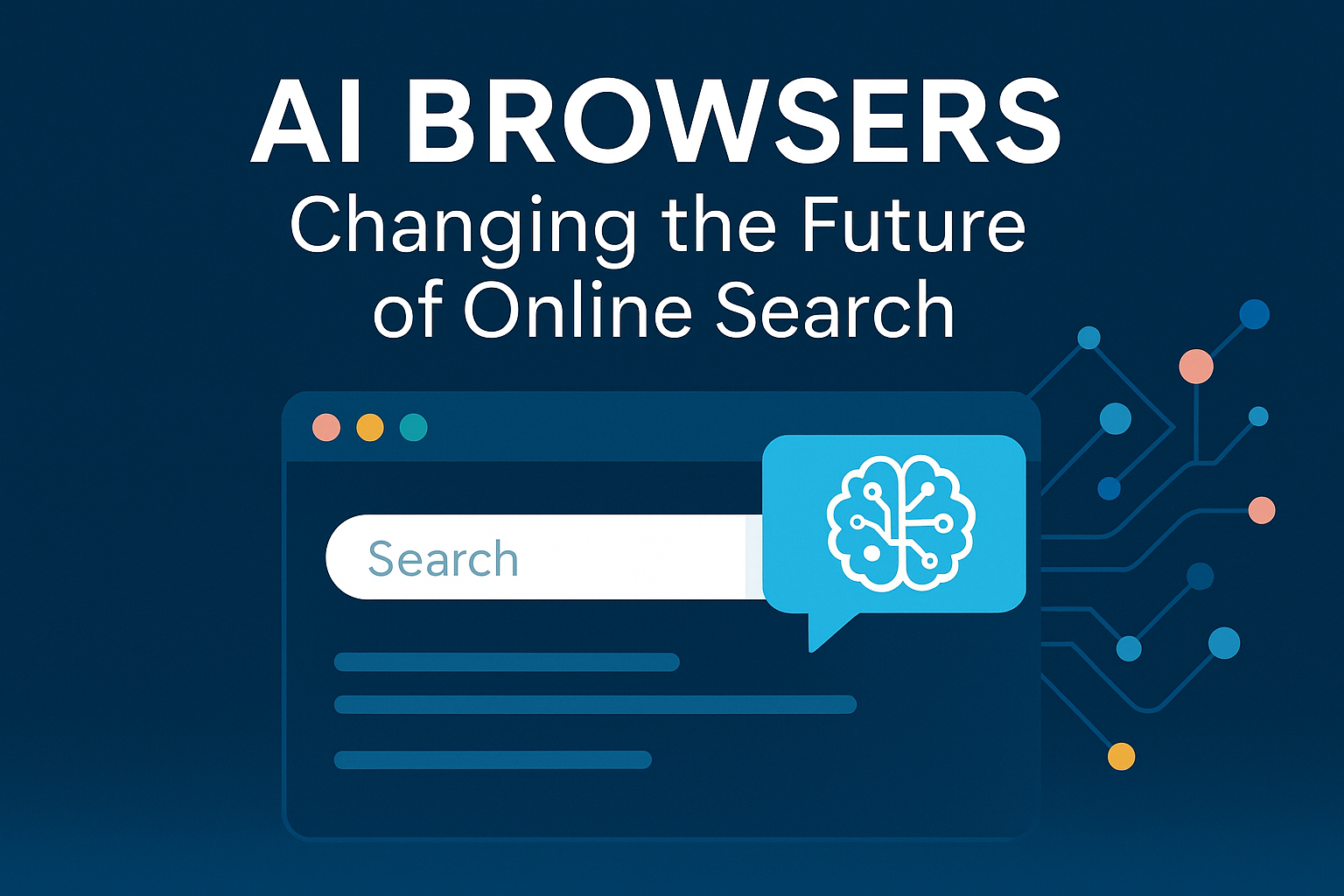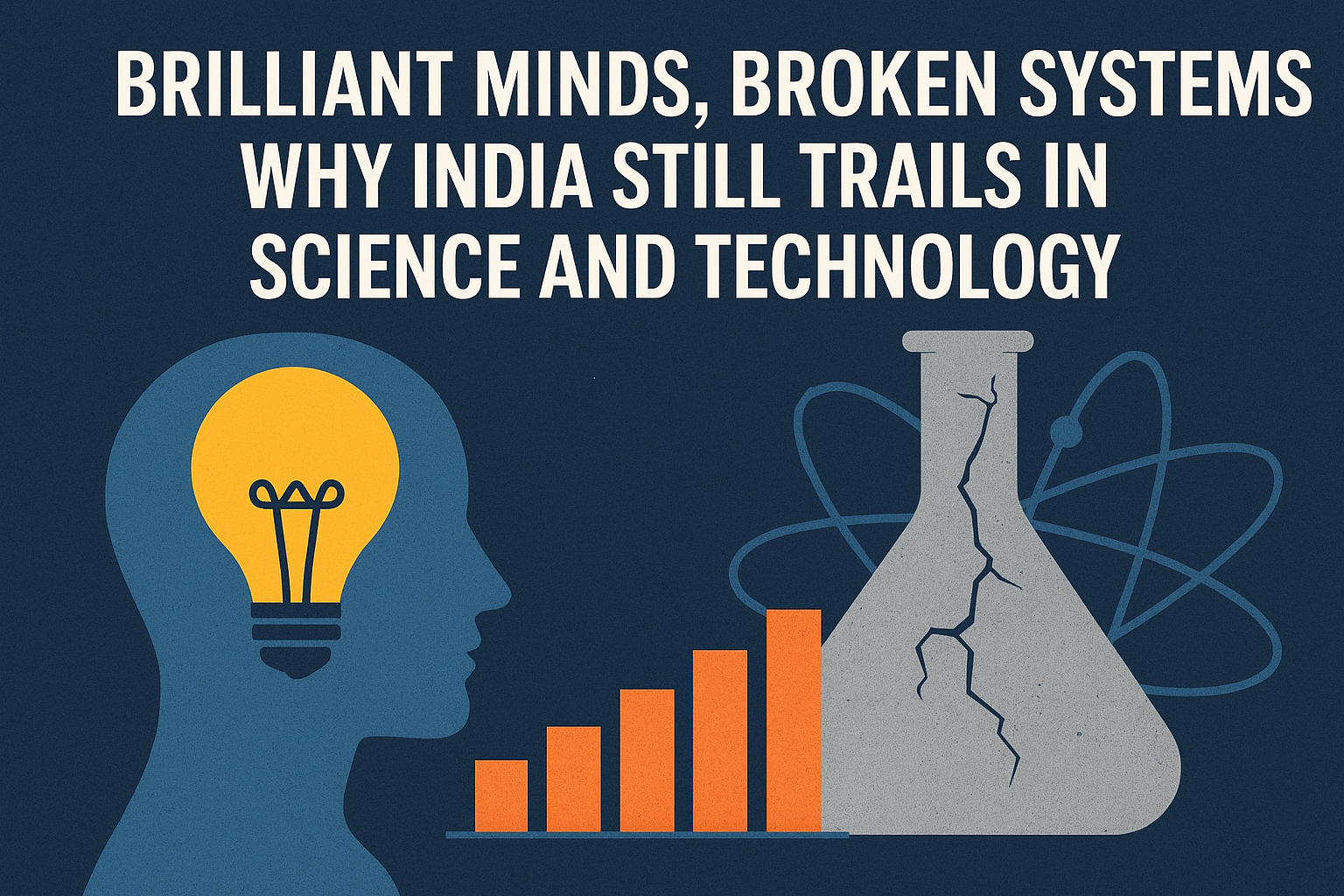
For over two decades, web browsers like Google Chrome, Microsoft Edge, Safari, and Firefox have shaped the way we explore the internet. They have become an everyday tool, just like books once were for libraries. But now, something entirely new is emerging—a new type of browser that doesn’t just let you search but helps you think, decide, and act. These are AI browsers, and they might soon change the way we use the internet completely.
Recently, an AI company called Perplexity launched what it claims is the world’s first true AI browser named Comet. This browser is not like the ones we have used in the past. Instead of just showing a list of websites, Comet can understand what you are looking for and give you direct answers, using AI models similar to ChatGPT. This shift could mean the end of traditional search as we know it and the beginning of something far more intelligent.
What Is an AI Browser?
To understand how AI browsers work, let’s first remember how normal browsers function. When we search for something, the browser connects to a search engine (like Google), shows us a list of links, and we pick the one that seems best. It’s like asking a question and being given a list of books to find the answer yourself.
Now imagine instead asking a question and having a librarian who reads every book instantly and tells you the most accurate answer. That’s how AI browsers work.
The Comet browser uses AI to summarize information from many websites and shows it in one answer. It can even help with daily tasks like sending emails, booking appointments, or summarizing long articles. This is because it’s powered by a large language model that can understand natural language just like how we speak and write.
Why Is This a Big Deal?
In the last ten years, the way we search online has not changed much. Google has remained the king of search, and Chrome has been the go-to browser for most people. But even with all the smart features added, the basic experience remains the same: we type, we scroll, we click, and we read.
AI browsers, however, do much more. They are like intelligent assistants built into your browser. Instead of wasting time switching between tabs and copying information, AI browsers gather and process everything for you. They use technologies like:
- Natural Language Understanding to know what you really want.
- Search Summarization to avoid showing a list of links.
- Task Automation like sending emails, managing calendars, or filling forms.
How Is Perplexity's Comet Different?
Perplexity’s Comet browser is built with AI from the ground up. It integrates the company’s own search engine, which is also AI-powered. You don’t just type a query; you ask questions. And the browser doesn't just give you websites; it gives you answers.
Users have already reported that Comet can carry out tasks like reading emails, scheduling meetings in Google Calendar, or even replying to messages. This is a step toward what experts call agentic AI—systems that can take action for you, not just suggest options.
For example, instead of typing “Best colleges for science in India” and reading ten different blogs, you can ask Comet directly and get a well-researched, up-to-date list with pros and cons.
Who Else Is Working on AI Browsers?
The success of AI tools like ChatGPT has made other companies take notice. According to the article, OpenAI is already preparing to launch its own AI-powered browser. Google, the current leader in browser and search technology, is also adding AI features like Gemini to Chrome. Microsoft has already added Copilot AI into Edge, but these are still not full AI browsers rather than they are like assistants added to regular browsers.
Perplexity is the first to build an entire browser that is smart from the start.
How Will AI Browsers Affect Us?
The way we interact with the internet will change. Instead of browsing several websites for answers, users will prefer one window that gives the best response. This could:
- Save time and energy: No more endless scrolling or confusing websites.
- Make learning faster: Students can use AI browsers to research and understand concepts easily.
- Help professionals: Tasks like writing reports, responding to emails, or creating presentations can be done more efficiently.
- Change jobs: With AI handling many tasks, some jobs will evolve. People will need to learn how to work with AI instead of doing everything manually.
However, there are also challenges.
Concerns and Risks
With great technology comes great responsibility. AI browsers raise questions about:
- Data Privacy: How will these browsers handle your personal information?
- Misinformation: AI can make mistakes or give biased answers if the training data is not accurate.
- Dependency: Will users rely too much on AI and lose critical thinking skills?
- Market Monopoly: Big companies could dominate the AI browser space, leaving smaller players behind.
Therefore, developers and governments will have to make sure AI browsers are safe, ethical, and fair.
A Shift in Online Search: Past vs Present
If we look at how search has evolved in the last decade, it has been mostly about speed and relevance. Google introduced voice search, featured snippets, and location-based results. But the core idea stayed the same—you type a query and get links.
AI browsers completely flip that model. The browser becomes your guide, not just a tool. It understands what you need, filters the noise, and acts on your behalf.
This means we are entering a new phase of internet usage. A phase where machines don’t just serve up information but also help us process, evaluate, and apply it.
What Should Students and General Users Know?
If you are a student or someone who uses the internet regularly, here’s what you should keep in mind:
- Learn how to ask the right questions. AI works best when you give it clear, detailed prompts.
- Don’t accept everything AI says. Always double-check important information.
- Use AI browsers to support your thinking—not replace it.
- Stay updated. These tools are evolving fast, and the earlier you learn them, the better your future skills will be.
Insightful Take
AI browsers like Comet are not just another app—they could become the new normal. Just like we moved from landlines to smartphones, we may now move from static search engines to intelligent browsers. This could make the internet more useful, more personalized, and more human-like.
Still, it will be up to users, developers, and leaders to ensure that these tools help everyone fairly and safely. The race has just begun, and it is one where every user is also a participant.
We are no longer just browsing; we are now conversing with the internet.




.jpeg)


.jpeg)




.jpeg)








